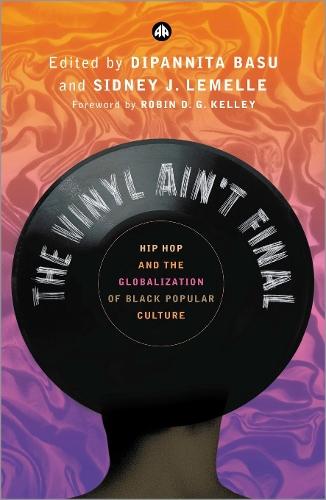Overview
'Hip Hop is Dead! Long Live Hip Hop!' From the front lines of hip hop culture and music in the USA, Britain, France, Japan, Germany, Hawaii, Tanzania, Cuba, Samoa and South Africa, academics, poets, practitioners, journalists, and political commentators explore hip hop — both as a culture and as a commodity. From the political economy of the South African music industry to the cultural resistance forged by Afro-Asian hip hop, this potent mix of contributors provides a unique critical insight into the implications of hip hop globally and locally. Indispensable for fans of hip hop culture and music, this book will also appeal to anyone interested in cultural production, cultural politics and the implications of the huge variety of forms hip hop encompasses.
Full Product Details
Author: Dipannita Basu ,
Sidney Lemelle
Publisher: Pluto Press
Imprint: Pluto Press
Dimensions:
Width: 15.00cm
, Height: 1.80cm
, Length: 23.00cm
Weight: 0.390kg
ISBN: 9780745319407
ISBN 10: 0745319408
Pages: 288
Publication Date: 20 April 2006
Audience:
College/higher education
,
Professional and scholarly
,
Undergraduate
,
Postgraduate, Research & Scholarly
Format: Paperback
Publisher's Status: Active
Availability: Out of stock

The supplier is temporarily out of stock of this item. It will be ordered for you on backorder and shipped when it becomes available.
Reviews
'Shows how at street level a combination of low economic status, poor education and a racist criminal justice system keeps young talented MCs excluded from the music business' -- Miriam Zadik Gold, Socialist Review
The Vinyl Ain't Final, is the latest attempt in the still growing field of hip hop studies to widen the scope of these discussions, amplifying this deep concern for the political to a global context. It is an insightful but largely humourless book, and therein lies the problem. If the exercise of deploring the bullet riddled 50 Cent's perforation as a marketing hook seems tired in a local context, consider what happens when we take these irresolvable questions to the world's stage. This book flits back and forth between Tanzanian national politics and local 'bongo flava' rappers with ease. -- Hua Hsu, The Wire This book explores hip hop as a global phenomenon' begins the blurb -reassuring if you're unfortunate enough to reside in those far off places where the residue of Grandmaster Flash's leather pants hasn't yet arrived. -- Hip Hop connection The early chapters of the book show how at street level a combination of low economic status, poor education and a racist criminal justice system keeps young talented MCs excluded from the music business. Success stories like artist 50 Cent with his thug to riches story emerge as the exception to the rule. Meanwhile at the top end, even the strong visibility of black entrepreneurship is still beholden to their larger, white owned major labels and distributors. In spite of this, for so many young people in the US, hip hop remains a creative postive force. Among the appalling homicide rates of Oakland and the Bay Area, we find a culturally diverse hip hop scene. In Hawaii - as in so many places around the world, hip hop provides the language of resistance for native Hawaiins fighting for self determination. -- Miriam Zadik Gold, Socialist Review
[T]his is a helpful book in explaining the appeal of hip hop and rap across the world to those who are dispossessed and have no other voice. It would certainly gain a wider readership beyond the academic community as many of the essays consciously eschew an academic framework which helps the reader to appreciate the political and social aspects of rap not only in the United States but across the world. -Dr. Lee Sartain, University of Portsmouth
Author Information
Dipa Basu is Associate Professor of Sociology and Black Studies at Pitzer College, Claremont, California. She is the editor of The Vinyl Ain't Final: Hip Hop and the Globalization of Black Popular Culture (Pluto, 2006) and author of The Politics of Social Science Research: Race, Ethnicity and Social Change (Palgrave Press, 2001). Sidney Lemelle is an Associate Professor of Black Studies at Pomona College, Claremont, California. He is co-editor of The Vinyl Ain't Final: Hip Hop and the Globalization of Black Popular Culture (Pluto, 2006).




